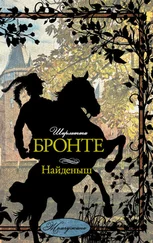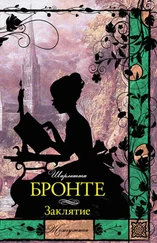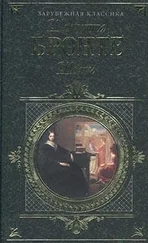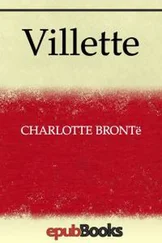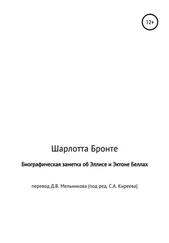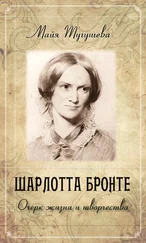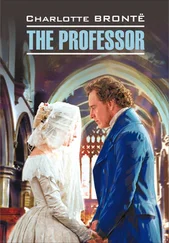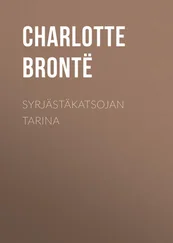Шарлотта Бронте - The Professor
Здесь есть возможность читать онлайн «Шарлотта Бронте - The Professor» — ознакомительный отрывок электронной книги совершенно бесплатно, а после прочтения отрывка купить полную версию. В некоторых случаях можно слушать аудио, скачать через торрент в формате fb2 и присутствует краткое содержание. Год выпуска: 2014, Издательство: epubBooks Classics, Жанр: Классическая проза, на английском языке. Описание произведения, (предисловие) а так же отзывы посетителей доступны на портале библиотеки ЛибКат.
- Название:The Professor
- Автор:
- Издательство:epubBooks Classics
- Жанр:
- Год:2014
- ISBN:нет данных
- Рейтинг книги:3 / 5. Голосов: 1
-
Избранное:Добавить в избранное
- Отзывы:
-
Ваша оценка:
- 60
- 1
- 2
- 3
- 4
- 5
The Professor: краткое содержание, описание и аннотация
Предлагаем к чтению аннотацию, описание, краткое содержание или предисловие (зависит от того, что написал сам автор книги «The Professor»). Если вы не нашли необходимую информацию о книге — напишите в комментариях, мы постараемся отыскать её.
The Professor — читать онлайн ознакомительный отрывок
Ниже представлен текст книги, разбитый по страницам. Система сохранения места последней прочитанной страницы, позволяет с удобством читать онлайн бесплатно книгу «The Professor», без необходимости каждый раз заново искать на чём Вы остановились. Поставьте закладку, и сможете в любой момент перейти на страницу, на которой закончили чтение.
Интервал:
Закладка:
Some people, however indifferent they may become after a considerable space of absence, always contrive to leave a pleasant impression just at parting; not so Hunsden, a conference with him affected one like a draught of Peruvian bark; it seemed a concentration of the specially harsh, stringent, bitter; whether, like bark, it invigorated, I scarcely knew.
A ruffled mind makes a restless pillow; I slept little on the night after this interview; towards morning I began to doze, but hardly had my slumber become sleep, when I was roused from it by hearing a noise in my sitting room, to which my bed–room adjoined—a step, and a shoving of furniture; the movement lasted barely two minutes; with the closing of the door it ceased. I listened; not a mouse stirred; perhaps I had dreamt it; perhaps a locataire had made a mistake, and entered my apartment instead of his own. It was yet but five o'clock; neither I nor the day were wide awake; I turned, and was soon unconscious. When I did rise, about two hours later, I had forgotten the circumstance; the first thing I saw, however, on quitting my chamber, recalled it; just pushed in at the door of my sitting–room, and still standing on end, was a wooden packing–case—a rough deal affair, wide but shallow; a porter had doubtless shoved it forward, but seeing no occupant of the room, had left it at the entrance.
"That is none of mine," thought I, approaching; "it must be meant for somebody else." I stooped to examine the address:—
"Wm. Crimsworth, Esq., No —, — St., Brussels."
I was puzzled, but concluding that the best way to obtain information was to ask within, I cut the cords and opened the case. Green baize enveloped its contents, sewn carefully at the sides; I ripped the pack–thread with my pen–knife, and still, as the seam gave way, glimpses of gilding appeared through the widening interstices. Boards and baize being at length removed, I lifted from the case a large picture, in a magnificent frame; leaning it against a chair, in a position where the light from the window fell favourably upon it, I stepped back—already I had mounted my spectacles. A portrait–painter's sky (the most sombre and threatening of welkins), and distant trees of a conventional depth of hue, raised in full relief a pale, pensive–looking female face, shadowed with soft dark hair, almost blending with the equally dark clouds; large, solemn eyes looked reflectively into mine; a thin cheek rested on a delicate little hand; a shawl, artistically draped, half hid, half showed a slight figure. A listener (had there been one) might have heard me, after ten minutes' silent gazing, utter the word "Mother!" I might have said more—but with me, the first word uttered aloud in soliloquy rouses consciousness; it reminds me that only crazy people talk to themselves, and then I think out my monologue, instead of speaking it. I had thought a long while, and a long while had contemplated the intelligence, the sweetness, and—alas! the sadness also of those fine, grey eyes, the mental power of that forehead, and the rare sensibility of that serious mouth, when my glance, travelling downwards, fell on a narrow billet, stuck in the corner of the picture, between the frame and the canvas. Then I first asked, "Who sent this picture? Who thought of me, saved it out of the wreck of Crimsworth Hall, and now commits it to the care of its natural keeper?" I took the note from its niche; thus it spoke:—
"There is a sort of stupid pleasure in giving a child sweets, a fool his bells, a dog a bone. You are repaid by seeing the child besmear his face with sugar; by witnessing how the fool's ecstasy makes a greater fool of him than ever; by watching the dog's nature come out over his bone. In giving William Crimsworth his mother's picture, I give him sweets, bells, and bone all in one; what grieves me is, that I cannot behold the result; I would have added five shillings more to my bid if the auctioneer could only have promised me that pleasure.
"H. Y. H.
"P.S.—You said last night you positively declined adding another item to your account with me; don't you think I've saved you that trouble?"
I muffled the picture in its green baize covering, restored it to the case, and having transported the whole concern to my bed–room, put it out of sight under my bed. My pleasure was now poisoned by pungent pain; I determined to look no more till I could look at my ease. If Hunsden had come in at that moment, I should have said to him, "I owe you nothing, Hunsden—not a fraction of a farthing: you have paid yourself in taunts!"
Too anxious to remain any longer quiescent, I had no sooner breakfasted, than I repaired once more to M. Vandenhuten's, scarcely hoping to find him at home; for a week had barely elapsed since my first call: but fancying I might be able to glean information as to the time when his return was expected. A better result awaited me than I had anticipated, for though the family were yet at Ostend, M. Vandenhuten had come over to Brussels on business for the day. He received me with the quiet kindness of a sincere though not excitable man. I had not sat five minutes alone with him in his bureau, before I became aware of a sense of ease in his presence, such as I rarely experienced with strangers. I was surprised at my own composure, for, after all, I had come on business to me exceedingly painful—that of soliciting a favour. I asked on what basis the calm rested—I feared it might be deceptive. Ere long I caught a glimpse of the ground, and at once I felt assured of its solidity; I knew where it was.
M. Vandenhuten was rich, respected, and influential; I, poor, despised and powerless; so we stood to the world at large as members of the world's society; but to each other, as a pair of human beings, our positions were reversed. The Dutchman (he was not Flamand, but pure Hollandais) was slow, cool, of rather dense intelligence, though sound and accurate judgment; the Englishman far more nervous, active, quicker both to plan and to practise, to conceive and to realize. The Dutchman was benevolent, the Englishman susceptible; in short our characters dovetailed, but my mind having more fire and action than his, instinctively assumed and kept the predominance.
This point settled, and my position well ascertained, I addressed him on the subject of my affairs with that genuine frankness which full confidence can alone inspire. It was a pleasure to him to be so appealed to; he thanked me for giving him this opportunity of using a little exertion in my behalf. I went on to explain to him that my wish was not so much to be helped, as to be put into the way of helping myself; of him I did not want exertion—that was to be my part—but only information and recommendation. Soon after I rose to go. He held out his hand at parting—an action of greater significance with foreigners than with Englishmen. As I exchanged a smile with him, I thought the benevolence of his truthful face was better than the intelligence of my own. Characters of my order experience a balm–like solace in the contact of such souls as animated the honest breast of Victor Vandenhuten.
The next fortnight was a period of many alternations; my existence during its lapse resembled a sky of one of those autumnal nights which are specially haunted by meteors and falling stars. Hopes and fears, expectations and disappointments, descended in glancing showers from zenith to horizon; but all were transient, and darkness followed swift each vanishing apparition. M. Vandenhuten aided me faithfully; he set me on the track of several places, and himself made efforts to secure them for me; but for a long time solicitation and recommendation were vain—the door either shut in my face when I was about to walk in, or another candidate, entering before me, rendered my further advance useless. Feverish and roused, no disappointment arrested me; defeat following fast on defeat served as stimulants to will. I forgot fastidiousness, conquered reserve, thrust pride from me: I asked, I persevered, I remonstrated, I dunned. It is so that openings are forced into the guarded circle where Fortune sits dealing favours round. My perseverance made me known; my importunity made me remarked. I was inquired about; my former pupils' parents, gathering the reports of their children, heard me spoken of as talented, and they echoed the word: the sound, bandied about at random, came at last to ears which, but for its universality, it might never have reached; and at the very crisis when I had tried my last effort and knew not what to do, Fortune looked in at me one morning, as I sat in drear and almost desperate deliberation on my bedstead, nodded with the familiarity of an old acquaintance—though God knows I had never met her before—and threw a prize into my lap.
Читать дальшеИнтервал:
Закладка:
Похожие книги на «The Professor»
Представляем Вашему вниманию похожие книги на «The Professor» списком для выбора. Мы отобрали схожую по названию и смыслу литературу в надежде предоставить читателям больше вариантов отыскать новые, интересные, ещё непрочитанные произведения.
Обсуждение, отзывы о книге «The Professor» и просто собственные мнения читателей. Оставьте ваши комментарии, напишите, что Вы думаете о произведении, его смысле или главных героях. Укажите что конкретно понравилось, а что нет, и почему Вы так считаете.


